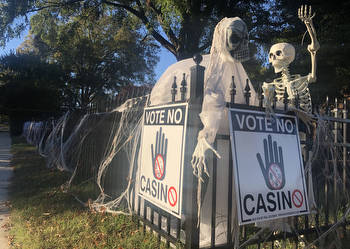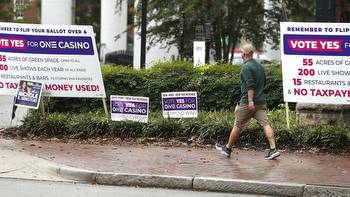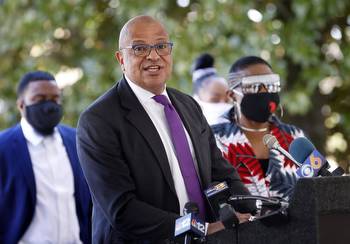Richmond narrows down new casino proposals to shortlist of three

The city of Richmond, Virginia, has narrowed down the number of applications for a new casino from six to just three this week. The remaining three in play comprise plans from Bally’s Corporation, the Cordish Companies and a joint effort between Colonial Downs and Urban One.
The Pamunkey Indian Tribe, Golden Nugget Hotels & Casinos and Wind Creek Hospitality found themselves out of the race as of Wednesday night following an announcement from the city’s Evaluation Panel.
Bally’s Richmond Casino Resort proposal, worth $650m, represents the largest casino resort project and includes a $100m upfront payment to the City. The firm’s President and CEO George Papanier responded to the shortlisting, saying: “We are excited and honored to have been selected as a finalist and have the continued opportunity to partner with the City of Richmond, its residents and businesses on this campaign.
“The Bally’s Richmond is truly a Richmond-first project, dedicated to supporting local businesses and minority organizations by driving job creation and developing sustained economic opportunities. We are confident that our proposal will provide incomparable economic benefits to the greater Richmond community, and we look forward to continuing our dialogue to prove to the City and its various stakeholders that Bally’s is for RVA.”
The Pamunkey Indian Tribe, which saw its bid rejected on Wednesday, said it was “extremely disappointed” at the decision, specifically its timing. A statement from the tribe read: “The timing of the decision, which comes before the public comment period has even concluded, seriously undermines confidence in the selection process and suggests a pre-determined outcome has been reached.
“The timing of this decision also suggests that public and community input will not be seriously considered in this process. Further, it appears that the City of Richmond did not afford the Pamunkey Indian Tribe the optional preference in state law that recognizes the Pamunkey Tribe’s ancestral heritage in the region.
“The Pamunkey Indian Tribe submitted the only 100 percent minority-owned, Virginia-based proposal. We were shocked to learn of our early dismissal from a process occurring in our native region and state, particularly in light of the fact that the Tribe was one of the first entities – if not the first – to talk to the City about gaming before commercial gaming was legalized in the Commonwealth.”








































